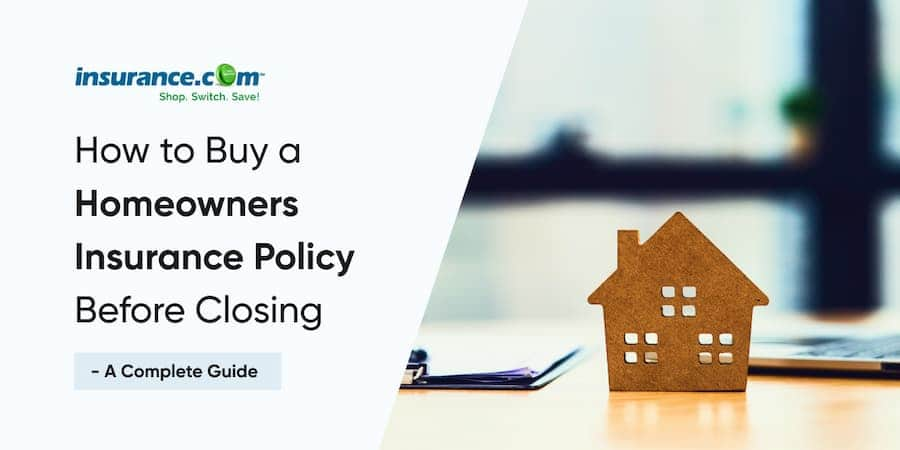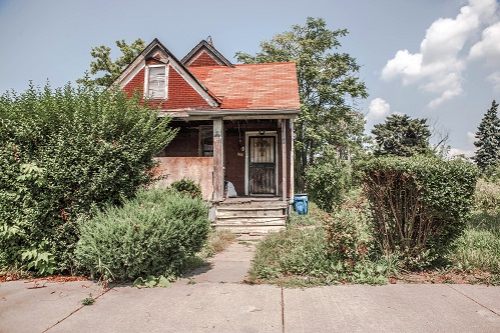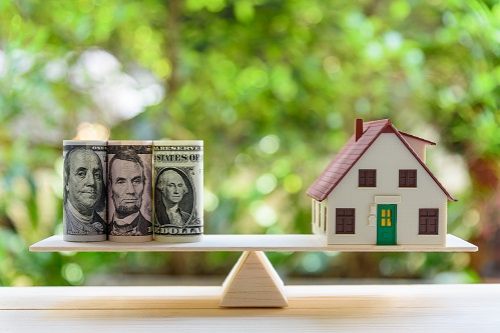How to shop for a homeowners insurance policy before closing
It’s a good idea to start shopping for homeowners insurance as soon as you have an offer accepted on the home you're buying. It can take some time to compare quotes and choose the right policy.
A good place to begin is checking with your car insurance company. Don’t stop there, though. It’s also wise to shop around. You’ll want to get home insurance quotes from multiple insurance companies.
Home insurance rates vary by company, so get multiple quotes for the same coverage level.
Insurance companies often let you bundle home and auto insurance policies -- and you get a discount. The average bundled policy discount is 18%, which is one of the largest home insurance discounts. Home insurance companies’ discounts differ, so make sure that they include them when getting you a quote.
It’s also wise to ask each insurance company about other discounts. Home insurance companies usually cap discounts at a level, such as 30%.
Other types of home insurance policy discounts include:
- New construction
- Electrical, plumbing and heating upgrades
- Fire resistive
- Roof upgrade
- Loyalty
- Paid in full
- Fire protection
- Burglar protection
You’ll also have to choose a deductible. The deductible is what you pay after you file a home insurance policy claim.
How much homeowners insurance coverage do you need? It depends on the value of your new home and your belongings.
Let’s take a look at the different parts of home insurance:
- Dwelling coverage. Dwelling coverage is the part of a homeowners policy covering the house itself. It's based on the calculated replacement cost of the house.
- Other structures. This covers any detached structures, like sheds. It is usually 10% of the dwelling coverage.
- Personal property. Covers everything in the home, from towels to the TV. It is usually 50% of the dwelling coverage
- Liability. This protects you if you're found to be liable for injuries or property damage to others. It starts at $100,000
- Additional living expenses (loss of use). Pays for living expenses incurred when you can't live at home due to a covered loss.
When should I get homeowners insurance?
You should try to have a home insurance policy in place a couple of weeks before closing. That way, the coverage will be set and if there are any issues with the policy, you can clear them up before your closing date.
Getting a homeowners insurance policy doesn’t take long. You just need to know what coverage you want and the insurance professional will take it from there and get you a quote.
How soon before closing should I get homeowners insurance?
Generally, mortgage lenders want you to have proof of homeowners insurance at least three business days before the closing date of your new home. Some insurers demand proof of coverage weeks before closing to allow the lender to review the policy.
What home insurance information do you need at closing?
Your mortgage lender will likely want you to provide proof of insurance that meets the requirements for replacement cost coverage. You will need to have the mortgage company listed on the policy, so that they will be paid in the event of a loss.
If your new home is in a flood zone, lenders may demand a separate flood insurance policy. Flood insurance covers you for flooding that comes from outside the home. The National Flood Insurance Program (NFIP), administered by the Federal Emergency Management Authority (FEMA), and private insurance companies offer flood insurance.
Is homeowners insurance paid in advance?
Mortgage lenders often want you to pay the full first year of homeowners insurance. You can pay this yourself or make it part of an escrow account, but the money will need to be accounted for and paid when the loan closes to ensure coverage.
When you make the insurance policy a part of your escrow account, you will pay it monthly along with your mortgage payment; the bank will pay the insurance company and then bill you.
Is homeowners insurance included in closing costs?
Homeowners insurance is part of closing costs.
Closing costs include:
- The first year of homeowners insurance
- Loan fees
- Title insurance
- Property tax
- Escrow fee
- Attorney fees
- Appraisal and survey fees
Closing costs usually range from 3% to 5% of your mortgage. Lenders give a loan estimate after you submit a mortgage application. The estimate shows you the expected closing costs. You’ll also receive a closing disclosure just before closing that will provide the final closing costs.
You usually have to pay closing costs with a cashier’s check.





